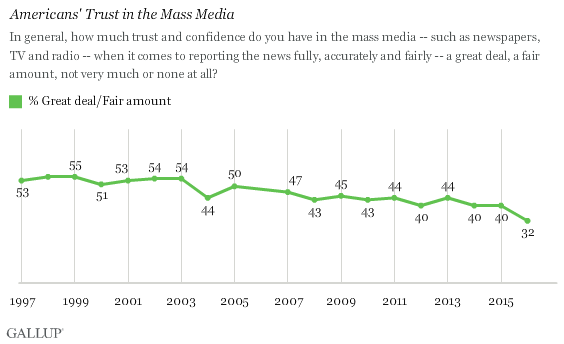
By Glynn Wilson –
WASHINGTON, D.C. — Public trust and confidence in the American press and mass media has fallen to its lowest level in Gallup polling history, according to the latest survey on the subject.
Only 32 percent of Americans now say they have a great deal or fair amount of trust in the media, a number that is down a statistically significant eight percentage points from just last year.
What is causing this continued erosion of public trust in the press in the United States, where the free press clause in the First Amendment to the Constitution is so critical for American democracy to work?
Clearly there are a number of reasons for this, many of them not touched on at all by the analysis of the polls put out by Gallup itself. But let’s deal with the Gallup analysis first, and then talk about the other reasons.
In its old fashioned stance of being “fair and balanced” in reporting public opinion in the U.S., Gallup’s analysis mirrors the two sided “false equivalence” of the press it is reporting on. At least that’s what some experts, including James Fallows, call this fake balance of the so-called objective press in an article for Atlantic monthly under the headline: How the Media Undermine American Democracy.
Gallup ascribes the lack of trust in the media more to Republicans than Democrats or independents due to its limited data from public opinion surveys.
“While it is clear Americans’ trust in the media has been eroding over time, the election campaign may be the reason that it has fallen so sharply this year,” Gallup says. “With many Republican leaders and conservative pundits saying Hillary Clinton has received overly positive media attention, while Donald Trump has been receiving unfair or negative attention, this may be the prime reason their relatively low trust in the media has evaporated even more.”
On the face of it this is absurd, and I could prove it with a simple content analysis. Anyone who has been paying attention at all to the mainstream news coverage of this election knows full well that Hillary Clinton has been the subject of just as many negative stories as Trump, many about the email scandal and her lack of trustworthiness.
The real problem with the coverage is that every stupid, false claim Trump made on the stump and on Twitter was reported by every news outlet in the land as if his point of view was legitimate, which is what helped him win the Republican nomination in the first place. It is true that once he got close and then won the nomination, almost every news organization in the country, especially the Washington Post, which most Americans don’t read, went after Trump with a vengeance – and for good reason.
Gallup reports that Republicans may think less of the media as a result of Trump’s sharp criticisms of the press, which could have some legitimacy. When Rush Limbaugh went after the New York Times and other news outlets for years by referring to them as the “liberal media,” that seems to have made a difference in public perception of the press over time.
But now according to Gallup’s numbers, Republicans who say they have trust in the media has plummeted to 14 percent, down from 32 percent a year ago, “easily the lowest confidence among Republicans in (at least) 20 years.”
According to Gallup, trust in the media on the part of Democrats has declined less, with 51 percent of Democrats expressing some or a great deal of trust in the media, compared to 55 percent in 2015. The same holds true for independents, with 30 percent expressing some or a great deal of trust in the media, down from 33 percent last year.
“Over the past 20 years, Democrats have generally expressed more trust than Republicans in the media, although in 2000, the two parties were most closely aligned, with 53 percent of Democrats and 47 percent of Republicans professing trust,” Gallup says.
Older Americans are more likely than young people to say they trust the media when surveyed, but trust has declined among both age groups this year. In the age group of 18 to 49, 26 percent say they trust the media, down from 36 percent last year, while among those 50 and older, 38 percent say they have a great deal or fair amount of trust in the media, a drop from 45 percent last year alone.
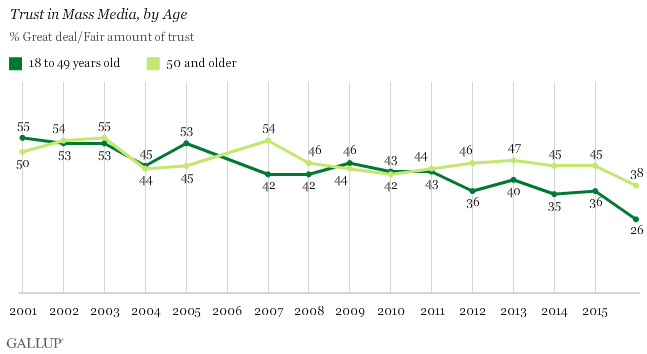
Other Factors At Work
There are other factors at work not reflected in Gallup’s polling. The quality and quantity of daily newspapers has been in decline for decades, but the death or near death of the daily newspaper in many communities accelerated in the past 10 years. In states where the Newhouse family won the newspaper wars 50 years ago, such as Alabama, Ohio, Louisiana, Oregon and New Jersey, the company stopped publishing a daily newspaper in the past decade and the quality of the three day a week papers is constantly met with public scorn. The replacement online product is also hated almost as much by readers in those states, so to the extent they are involved in public opinion surveys, their lack of confidence in the press would be reflected in the data. The same is true of other mass circulation newspaper chains in other states.
As the quantity and quality of newspaper journalism has declined, so too has the quality of local television news gone down, since broadcast journalism has always depended on print reporters, especially from wire stories, to inform their coverage.
Any basic content analysis would show that as more readers get their news from social media and online news sites, the coverage has gotten shorter and less in-depth as well as even more sensational in the chase for clickbait in recent years. Of course this would show up as less trustworthy news coverage on the part of opinion surveys of the public.
But let’s look at a snapshot of the historical timeline. In 2001, younger Americans (55 percent) were more likely than older Americans (50 percent) to express trust and confidence in mass media, according to Gallup’s numbers. This gap emerged again in 2005 when 53 percent of 18- to 49-year-olds had trust and 45 percent of those 50 and older expressed the same sentiment.
“Yet in the past decade, older Americans have mostly had more confidence than younger Americans, and this year, the gap between these age groups is 12 points,” Gallup says. “And 2016 marks the first time that confidence among older Americans has dropped below 40 percent in polling since 2001.”
While Gallup ascribes this drop to “the divisive presidential election,” it is clearly also due to the very real drop in quality news out there for people to trust. As Gallup says, “the slide in media trust has been happening for the past decade,” a period in time when print media was going away and the public was turning more and more to online sources of news, many of them not exhibiting the type of standards and values that would garner public trust.
“Before 2004, it was common for a majority of Americans to profess at least some trust in the mass media, but since then, less than half of Americans feel that way,” Gallup says. “Now, only about a third of the U.S. has any trust in the Fourth Estate, a stunning development for an institution designed to inform the public.”
Well, of course what the Gallup analysts may not realize is that the “Fourth Estate” term to describe the press in America was not designed to connote a positive thing, necessarily. It was meant to describe the press as a fourth branch of government along with the executive, legislative and judicial branches.
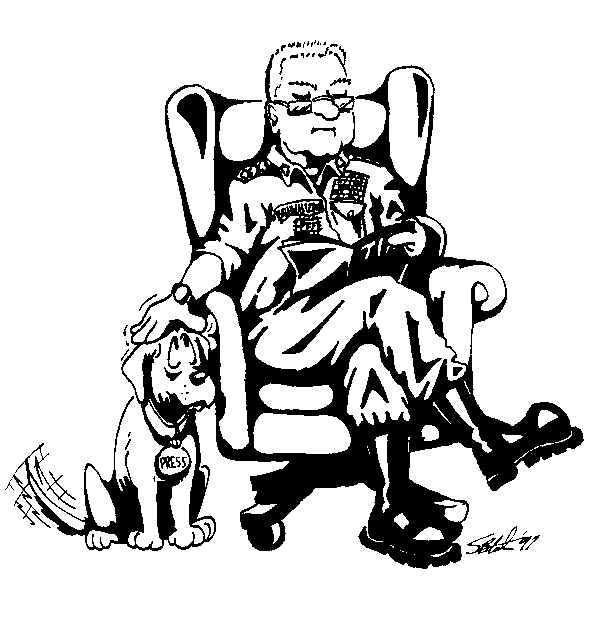
But that was not the purpose of the First Amendment’s clause guaranteeing a free press and free speech in the U.S. The job of the press was supposed to be apart from government, independent of government and corporations and in a position to be a critic of too much concentrations of power.
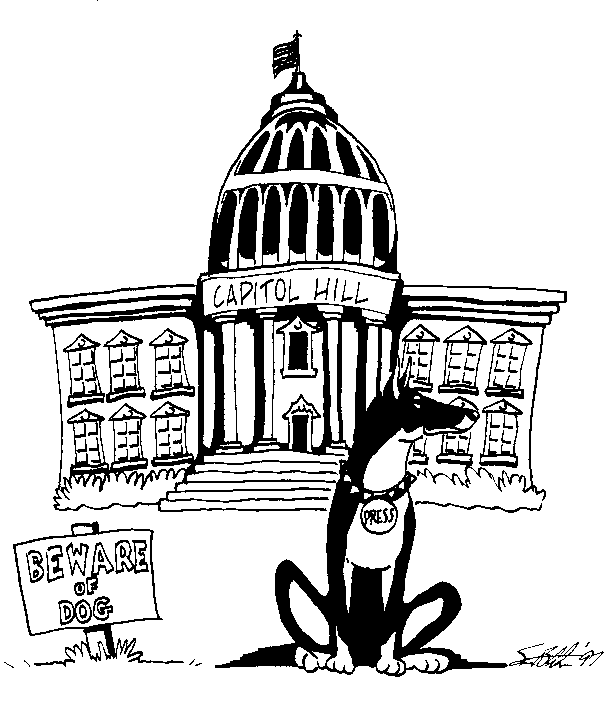
Thus if you look at the press as the Fourth Estate, you would be talking about the lap dog press or the guard dog press, not the watchdog press.
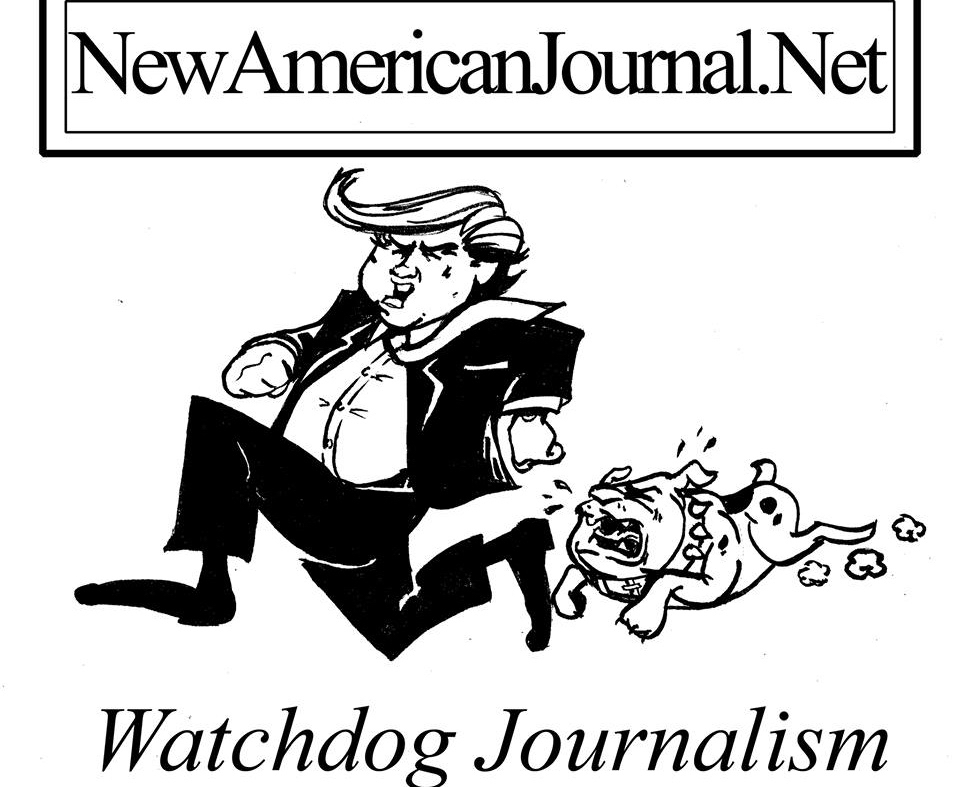
Finally, Gallup does get around to mentioning the “explosion of the mass media in recent years, especially the prevalence of blogs, vlogs and social media,” and says that “perhaps Americans decry lower standards for journalism.”
“When opinion-driven writing becomes something like the norm, Americans may be wary of placing trust on the work of media institutions that have less rigorous reporting criteria than in the past,” Gallup says. “On the other hand, as blogs and social media ‘mature,’ they may improve in the American public’s eyes. This could, in turn, elevate Americans’ trust and confidence in the mass media as a whole.”
I suppose this is something to hope for, but the problem will still be too much concentration of media ownership on the part of only a few corporations in the news business for the money, not public service. That really is the problem. We can compete with them on the web, but only if readers and sponsors begin to support what we do more.
Just to flesh out the history of this issue even more, Gallup began asking about public trust in the media in 1972. The high point in public trust in the media came in in 1976, when 72 percent of the public expressed trust in the press “in the wake of widely lauded examples of investigative journalism regarding Vietnam and the Watergate scandal.”
So in the late 1960s and early 1970s, the press actually did its job of being a watchdog of government, but that function has steadily declined since as the role of the press and media became more about making money than serving the public.
Survey Methods
Results for this Gallup poll are based on telephone interviews conducted Sept. 7-11, 2016, with a random sample of 1,020 adults, aged 18 and older, living in all 50 U.S. states and the District of Columbia. For results based on the total sample of national adults, the margin of sampling error is plus or minus 4 percentage points at the 95 percent confidence level. All reported margins of sampling error include computed design effects for weighting. Each sample of national adults includes a minimum quota of 60 percent cellphone respondents and 40 percent landline respondents, with additional minimum quotas by time zone within region. Landline and cellular telephone numbers are selected using random-digit-dial methods.














Therefore, PLEASE read, tell your neighbors to read, and financially SUPPORT the independent and tenacious New American Journal.